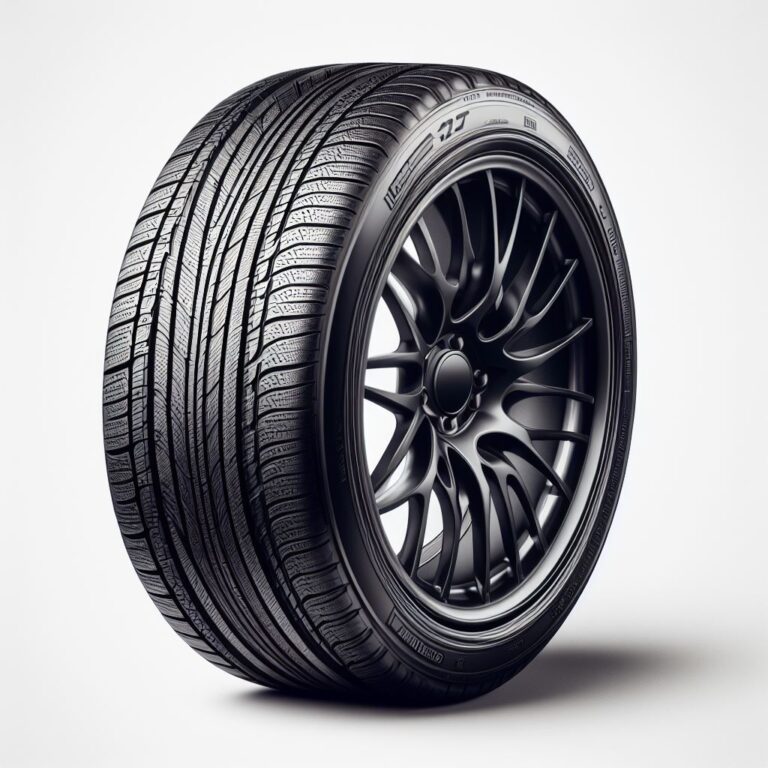How To Choose Laufenn X Fit HT
- How To Choose Arctic Claw WXI - January 20, 2024
- How To Choose BFGoodrich Advantage Control All Season - January 20, 2024
- How To Choose BFGoodrich Winter T/A KSI - January 20, 2024

Understanding the specific needs of your vehicle
To ensure the optimal performance and safety of your vehicle, it is essential to understand its specific needs. Each vehicle has unique requirements when it comes to tires, and it is crucial to consider factors such as weight, load-carrying capacity, and speed rating. Properly identifying these needs will help you select the most suitable tires that can handle the demands of your vehicle.
Additionally, it is important to take into account the type of driving you typically engage in. Are you primarily driving on highways and city streets, or do you frequently navigate rough terrains or icy roads? Understanding your typical driving conditions will allow you to choose tires that provide the necessary traction and grip, ensuring optimal handling and stability. By considering the specific needs of your vehicle, you can select tires that are tailored to its requirements, enhancing your driving experience and keeping you safe on the road.
Determining the appropriate tire size for your vehicle
When determining the appropriate tire size for your vehicle, it is crucial to refer to your vehicle owner’s manual or the tire placard located on the driver’s side door jamb. These sources will provide you with the recommended tire size and specifications for your specific vehicle model. It is important to adhere to these recommendations as using the wrong tire size can lead to poor handling, reduced stability, and potential damage to your vehicle.
In addition to the owner’s manual and tire placard, you can also consult a tire professional who can help you identify the correct tire size for your vehicle. They have the expertise and knowledge to guide you through the various factors that need consideration, including load capacity, speed rating, and aspect ratio. The tire professional can ensure that you select the optimal tire size that meets your vehicle’s requirements, ensuring safety, performance, and longevity.
Considering the weather conditions in your area
When it comes to selecting the right tires for your vehicle, it is crucial to consider the weather conditions in your area. The climate can have a significant impact on the performance and overall safety of your tires. In regions with heavy rainfall or snowy winters, it is essential to choose tires that are specifically designed for wet or winter conditions. These tires are made with unique tread patterns and rubber compounds that provide better traction and grip on slippery surfaces. On the other hand, in areas with hot and dry climates, tires that excel in heat resistance and tread wear become more important to ensure optimal performance and longevity. By considering the weather conditions in your area, you can make an informed decision and select tires that will meet the demands of your environment, providing you with a smooth and safe driving experience.
Additionally, adapting to varying weather conditions throughout the year can also dictate the type of tires you should choose. In regions that experience distinct seasons, it may be worth considering all-season tires that are capable of performing well in a range of weather conditions. These tires offer a balance of wet and dry traction, as well as decent performance in light snow. However, in areas with extreme winters, dedicated winter tires are highly recommended to ensure maximum safety and performance on icy and snowy roads. These specialized tires are built with deeper treads and unique rubber compounds that provide superior traction in cold temperatures, giving you the confidence to navigate through treacherous winter conditions. By carefully considering the weather conditions in your area and how they change throughout the year, you can make a wise choice and select tires that will deliver optimal performance and safety in any season.
Assessing the tread pattern and tire performance
When assessing the tread pattern and tire performance, it is important to consider the specific needs of your vehicle. The tread pattern plays a crucial role in the tire’s ability to grip the road surface, especially in different weather conditions. Tires with deep grooves and intricate patterns are more effective in providing traction on wet or snowy roads, while those with a more solid tread may offer better stability and handling on dry surfaces. Therefore, understanding the conditions in which your vehicle will predominantly be driven is essential in determining the appropriate tread pattern for optimal tire performance.
Additionally, evaluating the tire performance goes beyond just the tread pattern. Factors such as the tire’s grip, braking ability, and overall handling should be taken into account. High-performance tires are typically designed to maximize performance in terms of speed, cornering, and response, making them ideal for sports cars or vehicles that require precise handling. On the other hand, all-season tires are more versatile and offer a balanced performance in various driving conditions. Carefully assessing these factors and matching them with your vehicle’s needs will ensure that you make an informed decision when choosing the right tread pattern and tire performance for your vehicle.
Evaluating the durability and longevity of the tires
As a vehicle owner, one of the key factors to consider when selecting tires is their durability and longevity. Investing in a set of tires that will provide a long service life is essential for both your safety and your wallet. The durability of tires refers to their ability to withstand wear and tear over time, while longevity refers to how long they will typically last before needing to be replaced.
To evaluate the durability and longevity of tires, it is important to look at various factors. One of the main considerations is the tire’s tread compound. High-quality tires often have a specially formulated compound that is designed to resist wear and provide better grip. Additionally, the tread pattern itself plays a role in determining tire life, as certain patterns are better at distributing pressure and maintaining traction.
Another aspect to assess is the tire’s construction and design. Tires with reinforced sidewalls and sturdy belts tend to have better resistance to punctures and other damage, enhancing their overall durability. Furthermore, considering the load capacity and speed rating of the tires is important, as tires that are properly rated for your vehicle can contribute to their longevity.
In conclusion, evaluating the durability and longevity of tires is a crucial step in making an informed purchasing decision. By considering factors such as tread compound, tread pattern, construction, and load capacity, you can select tires that are built to last. Remember, investing in high-quality tires may require a higher upfront cost, but the extended durability and longer lifespan they offer can ultimately save you money in the long run.
Examining the noise level and comfort of the tires
When evaluating the noise level and comfort of tires, it is essential to consider the type and construction of the tire. Tires with a more aggressive tread pattern tend to produce more noise, especially at higher speeds. However, advancements in tire technology have led to the production of quieter tires that deliver a smoother and more comfortable ride. Tire manufacturers often design tires with noise reduction features, such as specialized tread blocks or noise-cancelling materials, to minimize noise and enhance the overall driving experience. Furthermore, the comfort of the tires is also influenced by their ability to absorb road vibrations. Tires with adequate shock absorption capabilities can provide a more comfortable ride, especially on uneven or rough road surfaces.
In addition to noise level and comfort, tire performance should also be considered. The grip and handling characteristics of a tire can significantly impact the overall driving experience and comfort level. Tires with better traction and stability can improve handling, cornering, and braking, thereby enhancing the overall comfort and safety of the vehicle. It is important to choose tires that offer a balance between noise reduction, comfort, and performance, taking into account the specific needs of your vehicle and your driving preferences. So, when selecting tires, make sure to prioritize noise level, comfort, and performance to ensure a smooth and enjoyable driving experience.
Taking into account the price and value of the tires
When considering the purchase of new tires, one crucial factor to keep in mind is the price and overall value of the tires. While it may be tempting to go for the cheapest option available, it is important to remember that quality should not be compromised solely for the sake of saving a few dollars. Investing in tires that offer good value for your money is essential for both your safety and the performance of your vehicle.
While comparing prices, it is advisable to also consider the overall value that the tires provide. This includes looking at factors such as the tread life, traction capabilities, and fuel efficiency. Opting for tires that may be slightly more expensive but offer extended durability and improved fuel efficiency can save you money in the long run. Additionally, it is crucial to evaluate the warranty offered by the manufacturer, as this can indicate their confidence in the product’s quality and longevity. Ultimately, finding the right balance between price and value will ensure that you make a wise investment in your vehicle’s tires.
Considering the availability and accessibility of the tires
It is important to consider the availability and accessibility of the tires before making a purchase decision. After determining the specific needs of your vehicle and researching the appropriate tire size, you should also check if the tires you have chosen are readily available in the market. It can be frustrating to find out that the tires you need are out of stock or have long waiting times for delivery. Therefore, it is advisable to check with multiple suppliers or retailers to ensure that the tires you require are easily accessible when you need them.
Additionally, it is essential to consider the accessibility of tire services such as installation, rotation, and alignment. Some tire brands may have limited service centers, making it inconvenient for maintenance and repairs. Before finalizing your decision, it is recommended to research and find local service providers that offer tire-related services, ensuring that you will have easy access to support and maintenance for your tires when required. Availability and accessibility are key factors that should not be overlooked, as they contribute to a seamless and efficient tire ownership experience.
Researching and comparing customer reviews and ratings
Customer reviews and ratings play a crucial role in the tire-buying process. Before making a purchase, it’s important to spend some time researching and comparing what others have to say about the tires you are considering. By reading customer reviews and ratings, you can gain valuable insights into the performance, durability, and overall satisfaction of a particular tire model. These reviews provide firsthand accounts from people who have already used the tires, giving you a glimpse into their experiences and helping you make an informed decision.
When researching customer reviews and ratings, it’s important to consider the overall consensus. Look for patterns and trends in the reviews to get an idea of common experiences and opinions. Keep in mind that while one or two negative reviews may exist, a majority of positive reviews indicate a good tire choice. Additionally, pay attention to any specific concerns raised by customers and assess whether those concerns are relevant to your specific needs and driving conditions. By carefully analyzing and comparing customer reviews and ratings, you can ensure that you choose the best tires for your vehicle.
Consulting with a professional tire specialist for expert advice
When it comes to choosing the right tires for your vehicle, there is no substitute for expert advice. That’s where a professional tire specialist comes in. These knowledgeable professionals have extensive experience in the tire industry, making them the perfect resource to turn to when you are unsure about which tires to choose.
A tire specialist can provide valuable insights and recommendations based on your specific needs and preferences. They will take the time to understand your driving habits, the type of vehicle you have, and the conditions in which you typically drive. Armed with this information, they will be able to advise you on the most suitable tire options for your vehicle, ensuring optimal performance, safety, and longevity. Whether you are looking for tires that excel in wet conditions, provide a comfortable ride, or offer exceptional durability, a tire specialist will guide you towards the best choices that meet your requirements.
How can I determine the appropriate tire size for my vehicle?
You can consult with a professional tire specialist who will consider factors such as your vehicle’s make, model, and recommended tire size to help you determine the appropriate tire size.
Why is it important to consider the weather conditions in my area when choosing tires?
Weather conditions can greatly impact tire performance and safety. It is important to choose tires that are suitable for the specific weather conditions in your area, such as winter tires for snowy or icy conditions.
What should I consider when assessing the tread pattern and tire performance?
The tread pattern affects traction and handling. You should consider the type of driving you do (highway, off-road, etc.) and the performance characteristics you desire (wet grip, dry handling, etc.) when assessing the tread pattern and tire performance.
How can I evaluate the durability and longevity of tires?
Professional tire specialists can provide information on the durability and longevity of different tire brands and models. You can also consider factors such as the tire’s tread life warranty and customer reviews.
What should I look for when examining the noise level and comfort of tires?
Tires with lower noise levels can provide a quieter and more comfortable driving experience. Look for features such as noise reduction technology and customer feedback on noise levels and comfort.
How important is the price and value of tires?
The price and value of tires should be considered in relation to their performance and durability. A professional tire specialist can help you find tires that offer a good balance of price and value for your specific needs.
Why is it important to consider the availability and accessibility of tires?
It is important to choose tires that are readily available and accessible in your area. This ensures that you can easily replace or maintain your tires when needed, without any inconvenience or delays.
How can I research and compare customer reviews and ratings for different tires?
You can check online platforms and websites that provide customer reviews and ratings for tires. These can give you insights into the experiences and opinions of other customers, helping you make an informed decision.
Why should I consult with a professional tire specialist for expert advice?
Consulting with a professional tire specialist can provide you with expert advice tailored to your specific vehicle and needs. They have extensive knowledge and experience in the tire industry, ensuring that you make the best choice for your vehicle.






